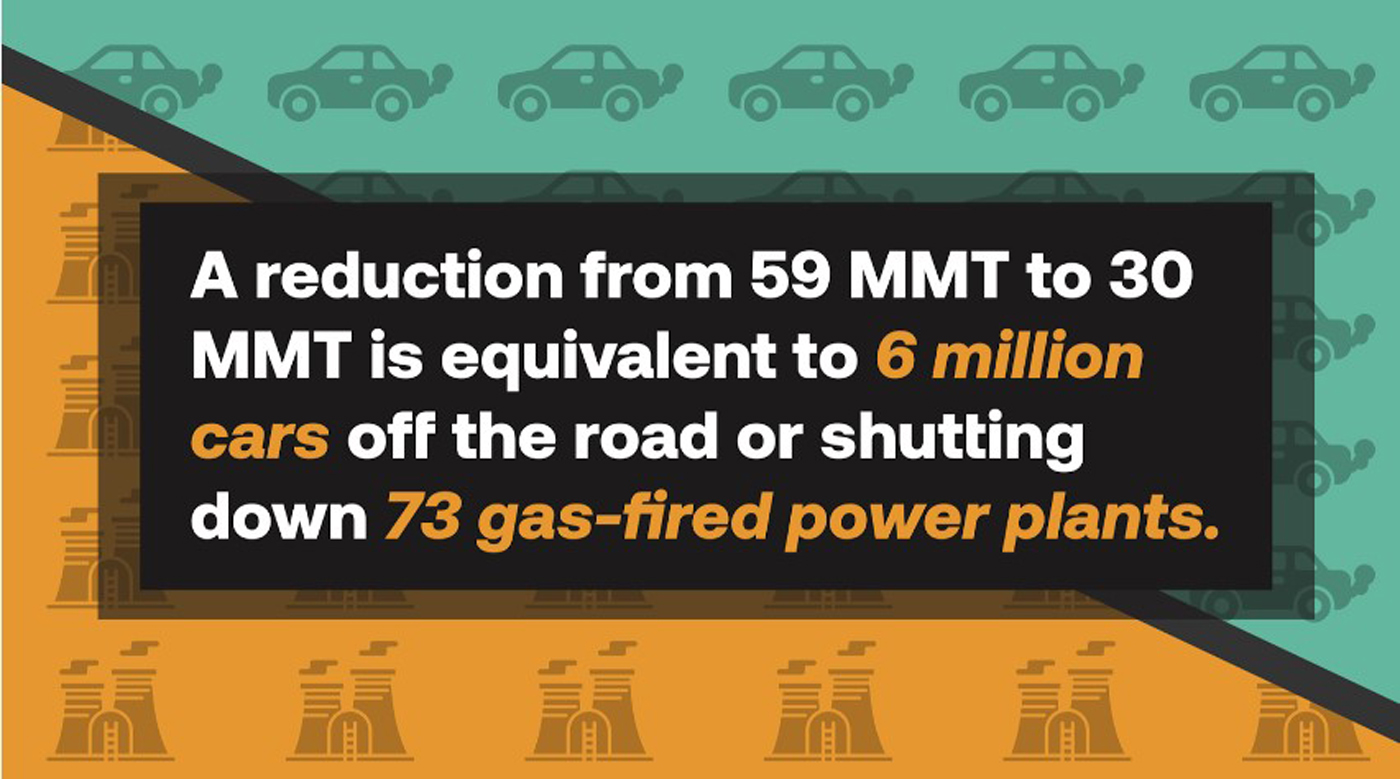After years of work at the California Public Utilities Commission (CPUC), the Regenerate California Coalition won a commitment in February to study how the state could end its reliance on fossil gas plants -- a massive victory for our coalition. More than 70 percent of the 167 gas plants in the state are located in or near heavily polluted environmental justice communities, despite those communities only making up around a quarter of the state’s population. Gas plants poison our communities by releasing NOx, which contributes to asthma, heart attacks, and even premature death.
This decision by the CPUC is part of its Integrated Resource Plan (IRP), the state's long term energy plan, a proceeding Regenerate California has been involved in for many years. The IRP is the primary forum through which the state makes planning decisions about what types of resources electric utility companies like PG&E, SoCal Edison and San Diego Gas & Electric have to use to supply our electricity, whether that’s from renewable energy like wind and solar or dirty energy like fossil gas plants. The IRP is an ongoing process that gets updated every couple years. Influencing the decisions that get made in the IRP proceeding is one of the most important ways we can work toward shutting down gas plants in the communities who have been most subjected to environmental racism.
What did February’s IRP decision do?
- Slashed the emissions limit for the electricity sector to 30 MMT (million metric tons) by 2030 (down from current emissions of 59 MMT a year). That's effectively cutting today's electric sector greenhouse gas emissions almost by half, equivalent to taking six million cars off the road, or shutting down 73 gas plants!
- Ordered utilities to purchase an additional 4,000 MW of clean energy;
- Committed the CPUC to a stakeholder process beginning this year to study a pathway to gas plant retirements in California; and
- Reduced the allowable duration of contracts between utility companies and out of state gas plants from 10 years to 3 years
This matters because the lower the emissions limit for electricity generation, the more clean energy that utility companies have to use to meet that lower emissions limit. In other words, private utilities aren't able to use as many polluting energy sources like gas power plants. When utilities don't purchase electricity from gas plants, those plants don't make enough money to stay open, and they're forced to shut down. (That’s what our communities and climate need!)
How did we win?
Regenerate California submitted countless legal comments on this proposed decision, and dozens of volunteers showed up time and time again over the last three years to the PUC - whether that was bussing up to San Francisco from all over the state, or giving virtual public comment - to tell Commissioners we don’t want our electricity to come from burning polluting gas in our backyards.
What's next for long term energy planning in the IRP?
California’s utility companies each have to submit to the CPUC their own plans for how they’ll meet the PUC’s greenhouse gas emissions targets by 2030, known as the Preferred Resource Plan, and the CPUC will have to approve them. Also, the CPUC will be developing a new framework for how to ensure utilities comply with orders to secure their electricity from clean energy, called the Procurement Program. We are pushing for the CPUC to consider “locationally targeted clean energy procurement” to ensure that clean energy is actually located in the places where it will lead to the retirement of gas plants and provide relief to frontline communities.
This decision wouldn’t have been possible without the leadership of our broad coalition of frontline community members, organizers, lawyers, policy advocates, communications professionals, and technical experts. We came together to demand that state regulators repair, not reinforce, the harms produced by decades of discriminatory policies that have made us reliant on generating electricity at the cost of sacrificing the health of working class communities and communities of color.
This victory is a testament to the power of our communities to rewrite our state’s energy future. Now it’s up to us to make sure the PUC follows through on their commitment to environmental justice communities, and that their modeling of a gas plant retirement scenario actually leads to gas plants shutting down in environmental justice communities.
For campaign updates, sign our petition at sc.org/IRP23. Read more about our victory in the Courthouse News Press, E&E news, and Canary Media.
The Regenerate California Campaign is a partnership between the California Environmental Justice Alliance and Sierra Club, whose coalition members include the Center for Community Action and Environmental Justice (CCAEJ), Central Coast Alliance United for a Sustainable Economy (CAUSE), and Communities for a Better Environment (CBE).
